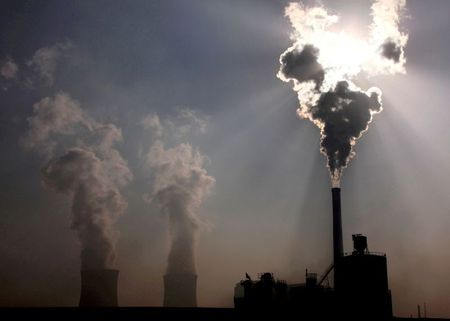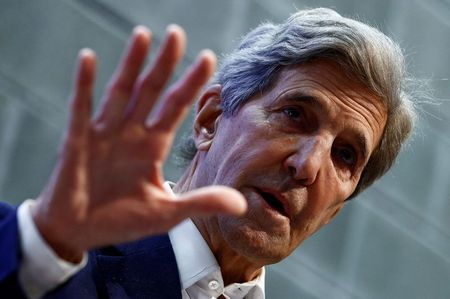
We need more, EU and U.S. urge China ahead of climate summit

By Kate Abnett
BRUSSELS (Reuters) – The United States and European Union’s climate envoys urged China to step up its targets to cut emissions on Thursday, adding to the pressure on the world’s biggest emitter ahead of the COP26 conference in Glasgow.
With three weeks to go until the United Nations’ COP26 summit begins, the United States and the EU are attempting to convince other countries to fight climate change faster. Top of the list is China, which produces around 28% of the world’s emissions. “We need more clarity from the Chinese, for instance, on when they’re going to peak out with their emissions, what their plans are with coal-fired power generation in China,” EU climate policy chief Frans Timmermans told an EU conference on Thursday.
The United States, the second biggest emitter after China, is responsible for about 15% of emissions and the EU for roughly 8%. China has a goal to become carbon neutral by 2060 and a nearer term target for its CO2 emissions to peak by 2030, which is not aligned with the steep reductions scientists say are needed this decade to avoid the worst impacts of climate change. “We hope China will join us in this effort to have serious enough reductions,” U.S. climate envoy John Kerry said. “China has to decide whether it wants to be counted as a genuine leader on this topic and also as a responsible nation with respect to global efforts.”
President Xi Jinping last month said China will stop financing international coal-fuelled power generation – which analysts said could wipe out $50 billion of planned investments, although it did not cover new domestic plants. Ambitious action from China could pressure other countries to act, with India and Saudi Arabia among those that have yet to upgrade their emissions-cutting commitments. Efforts to raise climate action up the agenda face headwinds from other geopolitical tensions.
The United States and China this week agreed their presidents would hold a virtual meeting by the year’s end to try to improve communication as strategic rivalry intensifies and relations are strained over hotspots including Taiwan.


















POST COMMENTS (0)